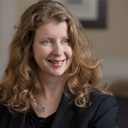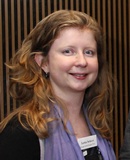From 30 March to 1 April, over 850 delegates from 54 countries attended the Skoll World Forum on Social Entrepreneurship in Oxford, an event that is pitched as the ‘premier international platform for accelerating entrepreneurial approaches and innovative solutions to the world’s most pressing social issues’. Of those attending, 13 per cent identified themselves as social entrepreneurs while 22 per cent identified themselves as coming from investment groups (finance-other, foundation/trust, individual investor/donor, and investment firm).
The theme of this year’s Forum was ‘Large scale change – ecosystems, networks and collaborative action’, focusing on the need to shift from disparate players and solutions to an ‘ecosystem approach that removes barriers and engages the full spectrum of actors required for sustainable change’.
While attendance at the Forum is by invitation only, with fees ranging from £275 to £1,500 perhaps making it somewhat inaccessible for many social entrepreneurs, it is undeniable that the event attracts a wide range of high-profile and inspiring speakers and a high-energy audience.
Two sessions particularly stood out for me. The first was ‘Deep leadership: Interior dimensions of large scale change’. The session was chaired by Mabel van Oranje of The Elders, and a number of inspiring and courageous leaders, including Archbishop Tutu and Cecelia Flores-Oebanda of Visayan Forum Foundation, were invited to share their very personal stories about what motivates them, how they sustain their staying power, and how they recharge their batteries in the face of tackling issues such as human trafficking.
The second session was called ‘The World in 2025: Megatrends and the context for large scale change’. The session was skilfully chaired by Daniel Franklin of the Economist, who started by outlining the key drivers of change that affect the world now and in the future, including an ageing population, the transfer of economic power from the West to the East, and the expanding club of democratic countries. This was followed by a series of contributions, including an inspiring presentation from Richard Seymour, founding partner of Seymourpowell, who shared his insights about how people can think about the future better by, for example, understanding the emergent behaviour of the very young, and tearing ourselves away from our desks (to which many of us are chained at work) and simply ‘getting out more’.
As a fan of futures thinking, sessions such as this, which encourage the art of the long view, are incredibly valuable – especially given the need for civil society organizations, including social enterprises, to prepare for increasing discontinuity and volatility in the contexts in which they operate.
Lenka Setkova is a trustee of FairPensions. Email lenkasetkova@hotmail.com
For more information
http://www.skollworldforum.org







Comments (0)